Ma-Cho Temple A Majestic Landmark in La Union
Tucked away on a scenic hilltop in San Fernando, La Union, the Ma-Cho Temple stands as a vibrant symbol of Filipino-Chinese heritage and spiritual harmony. This Taoist temple, dedicated to Mazu, the Chinese goddess of the sea, is a cultural and architectural gem that has captivated visitors since its establishment in 1977. Known for its striking red-tiled roofs, intricate dragon motifs, and a unique spider-type dome, the temple offers a serene escape with breathtaking views of the West Philippine Sea. Beyond its aesthetic allure, the Ma-Cho Temple holds deep historical and spiritual significance, blending Taoist traditions with Catholic influences in a way that reflects the Philippines’ rich multicultural tapestry. Whether you’re a history enthusiast, a spiritual seeker, or a traveler in search of stunning vistas, the Ma-Cho Temple promises an unforgettable experience that captures the essence of La Union’s cultural diversity.

Inside the temple, you'll find statues and altars dedicated to Mazu, along with other Taoist deities such as Guan Yu and Wei Tuo. Devotees and visitors can offer incense, prayers, and make wishes for good fortune, health, and protection. The temple also hosts various religious and cultural activities throughout the year, including Taoist festivals and ceremonies. Apart from its religious significance, the Ma-Cho Temple offers stunning panoramic views of San Fernando and the coastline. Many visitors climb up the hill to enjoy the picturesque scenery and capture memorable photos. Once you are in La Union, this beautiful temple is must visit. It is open from 7am to 5pm every day and there is no entrance fee.
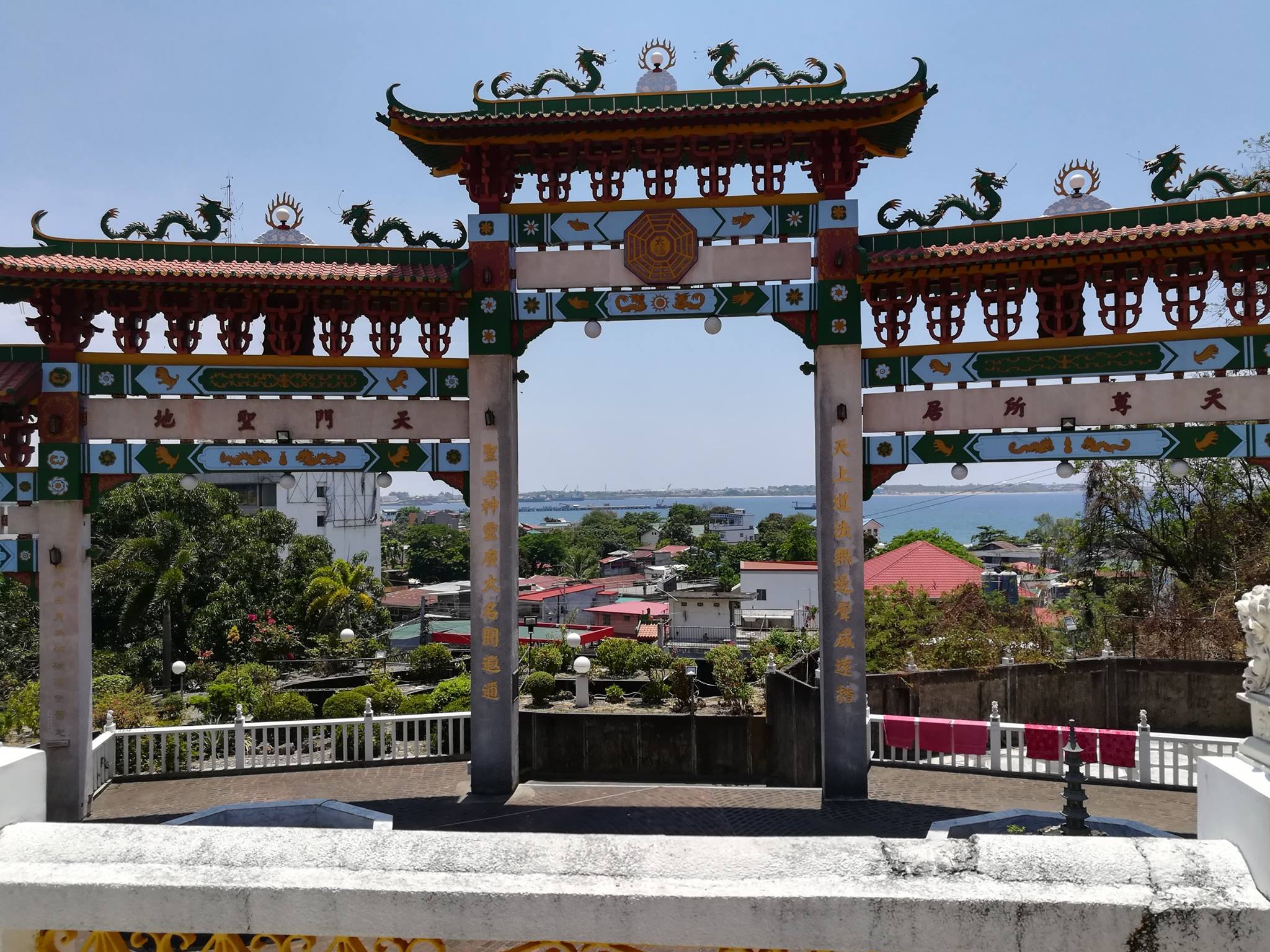
Ma-Cho Temple La Union: History, Architecture, and Spiritual Significance
Nestled on a hilltop in San Fernando, La Union, the Ma-Cho Temple stands as a vibrant testament to the Filipino-Chinese cultural confluence, offering a serene escape with panoramic views of the West Philippine Sea. This Taoist temple, dedicated to the Chinese sea goddess Mazu, is not only a place of worship but also a striking architectural marvel and a symbol of spiritual unity. Let’s delve into its history, architecture, and spiritual significance.
A Rich Historical Tapestry
The Ma-Cho Temple, also known as Mazu Temple, was constructed in 1977, with its cornerstone laid on September 11, 1975, and inaugurated on December 8, 1978. The temple’s creation was spearheaded by Dy Keh Hio, a prominent figure in the Filipino-Chinese community, with support from then-Tourism Secretary Jose D. Aspiras. The project was a collaborative effort by Filipino-Chinese devotees, reflecting the deep cultural ties between the Philippines and Chinese heritage, which date back to the early 1500s when Chinese traders began settling in the archipelago.
The temple’s origins are tied to a heartfelt gesture: in 1967 (though some sources note 1972), Taiwanese fishermen, seeking refuge in San Fernando Bay during a typhoon, gifted an 8-inch wooden statue of Mazu to the local community as a token of gratitude for their hospitality. This statue, now enshrined at the temple’s main altar, became the spiritual centerpiece of the Ma-Cho Temple. Mazu, or Ma-Cho, is revered as the goddess of the sea, a protector of seafarers, and a symbol of compassion. Born as Lin Moniang in 960 AD during China’s Sung Dynasty, she was known for her miraculous abilities, including weather prediction and rescuing sailors, earning her titles like “Queen of Heaven” and “Dragon Girl.” She passed away at 27, but her legacy endures among Chinese coastal communities worldwide.
What makes the temple’s history particularly fascinating is its connection to Roman Catholicism, a unique example of religious syncretism in the Philippines. Many devotees, both Taoist and Catholic, believe Mazu and the Virgin of Caysasay—whose image was discovered in 1603 by a fisherman in Taal, Batangas—are one and the same. This belief stems from their shared association with water and protection of seafarers. Each year, from September 21 to 26, Mazu’s statue is brought to the Basilica of St. Martin in Taal for a pilgrimage, followed by a procession back to San Fernando, culminating in a cultural celebration. This ritual underscores the temple’s role as a bridge between two faiths, a rarity that highlights the Philippines’ multicultural fabric.
Architectural Splendor
Perched 70 feet above sea level on a one-hectare lot, the Ma-Cho Temple is a seven-story, 11-tiered structure that commands attention with its vibrant, multi-hued design. The temple’s architecture is a blend of traditional Chinese elements and local influences, crafted with materials imported from Taiwan and China. Taiwanese laborers, under the direction of architect Thomas Diokno, brought the vision to life, incorporating intricate details that reflect Taoist aesthetics.
One of the temple’s most striking features is its spider-type dome, a unique design said to be the only one of its kind in the Philippines. This dome, composed of interlinking wood carvings of saints, rises in 13 tiers, creating a mesmerizing circular pattern that draws the eye upward. The temple’s exterior is adorned with Chinese motifs, including camphor wood carvings of lions and dragons—symbols of protection and power. The Majestic Five Door Gate, a rare feature as most Chinese temples have three archways, welcomes visitors with its ornate dragon decorations and panoramic views of the coastline.
The temple complex is a treasure trove of attractions: the Liang Thing Pagoda, Bell and Drum Towers, Bamboo Garden, and two circular ponds with koi fish and water lilies add to its charm. Stone statues of the 18 Arhats (Buddhist disciples, often mistaken as Chinese saints) line the retaining wall, while a golden dragon emblem and animal statues believed to bring good luck enhance the spiritual ambiance. Inside, the meditation room features a grand staircase and red kneelers, with Mazu’s statue at the center, her eyes closed and hands clasped in a serene pose. The interiors are filled with ancient Chinese art, from wood carvings to decorative ornaments, creating an atmosphere of reverence and beauty. The temple’s elevated location not only offers stunning views of San Fernando Bay but also aligns with Mazu’s role as a sea goddess, symbolically watching over the waters she protects.
Spiritual Significance
The Ma-Cho Temple is more than an architectural marvel; it is a spiritual sanctuary that transcends religious boundaries. Dedicated to Mazu, the temple serves as a place of worship for Taoist devotees who seek her blessings for safety at sea, good fortune, and healing. Weekly “Buyong” sessions allow devotees to communicate with the gods through temple priests, asking questions about their future or seeking guidance. This practice reflects Taoism’s emphasis on harmony with the natural world and the divine, encouraging simplicity, balance, and effortless action (wu wei).
What sets the Ma-Cho Temple apart is its inclusivity. Unlike some Taoist temples, such as Cebu’s Phu Sian Temple, it welcomes worshipers and non-worshipers alike, including Catholics. This openness is rooted in the shared veneration of Mazu and the Virgin of Caysasay, symbolizing a profound unity between Taoist and Catholic traditions. The temple also honors Tho Ti Kong, an Earth Deity, further enriching its spiritual tapestry.
For visitors, the temple offers a space for meditation, reflection, and cultural immersion. Its serene atmosphere, coupled with the breathtaking views of the coastline, provides a sense of peace and connection to the divine. The annual pilgrimage to Taal reinforces the temple’s role as a cultural and spiritual bridge, fostering understanding and respect between communities. Even for non-believers, the temple’s majestic architecture and tranquil gardens make it a must-visit destination in La Union, as noted by travelers who appreciate its beauty and the opportunity to light incense and offer prayers.
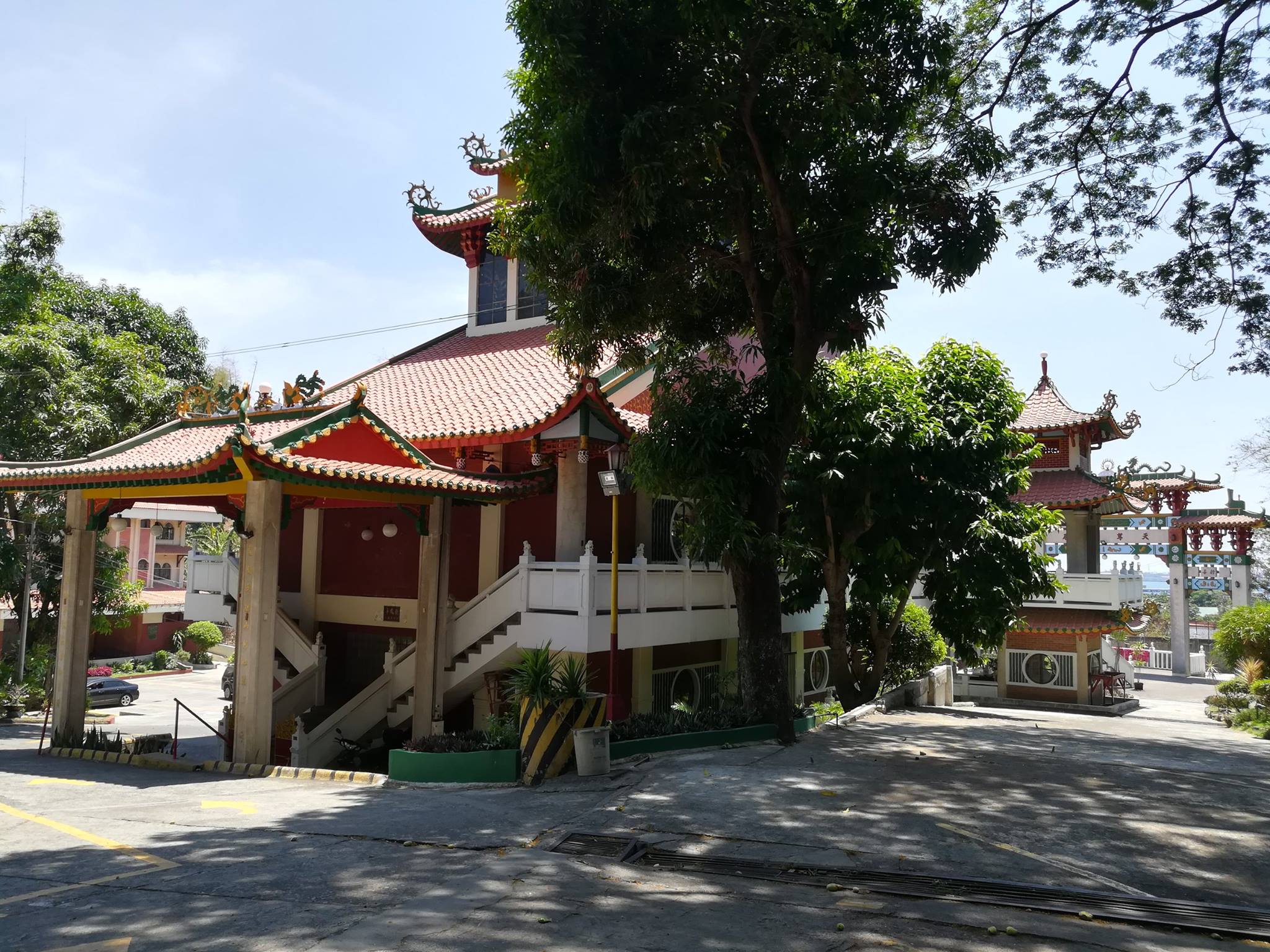
Why Visit Ma-Cho Temple in San Fernando, La Union? Top Reasons.
The Ma-Cho Temple in San Fernando, La Union, is more than just a place of worship—it’s a cultural landmark, a spiritual haven, and a scenic destination that draws travelers from across the Philippines and beyond. Perched on a hilltop overlooking the West Philippine Sea, this Taoist temple dedicated to the sea goddess Mazu offers a unique blend of history, architecture, and serenity. Here are the top reasons why you should add the Ma-Cho Temple to your La Union itinerary.
1. Marvel at Stunning Taoist Architecture
The Ma-Cho Temple is a masterpiece of traditional Chinese architecture, making it a visual delight for visitors. Its seven-story, 11-tiered structure features vibrant red-tiled roofs, intricate wood carvings, and dragon motifs that symbolize protection and power. The temple’s spider-type dome, a rare architectural feature in the Philippines, is composed of interlinking wood carvings of saints, creating a mesmerizing circular pattern. The Majestic Five Door Gate is adorned with dragon decorations and offers a striking frame for the coastal views beyond. From the Liang Thing Pagoda to the Bell and Drum Towers, every corner of the temple showcases the artistry of Taoist design, making it a must-see for architecture enthusiasts.
2. Experience Spiritual Serenity
Dedicated to Mazu, the Chinese goddess of the sea, the Ma-Cho Temple is a place of profound spiritual significance. Whether you’re a Taoist devotee or simply seeking a moment of peace, the temple’s serene atmosphere provides a perfect setting for reflection and meditation. The meditation room, with its grand staircase and red kneelers, houses Mazu’s statue at the main altar, inviting visitors to light incense and offer prayers. The temple’s inclusive nature welcomes both worshipers and non-worshipers, including Catholics, due to the shared veneration of Mazu and the Virgin of Caysasay. This unique blend of Taoist and Catholic traditions, as highlighted by the annual pilgrimage to Taal, makes the temple a spiritual bridge that fosters unity and understanding.
3. Enjoy Breathtaking Views of San Fernando Bay
Perched 70 feet above sea level, the Ma-Cho Temple offers panoramic views of San Fernando Bay and the West Philippine Sea, making it a prime spot for photography and relaxation. The second image captures the temple’s Majestic Five Door Gate framing the coastline, with the town of San Fernando and the sea stretching into the horizon. The elevated location not only enhances the temple’s symbolic connection to Mazu, the protector of seafarers, but also provides a tranquil vantage point to soak in the natural beauty of La Union. Whether you’re watching the sunrise or simply enjoying the sea breeze, the temple’s scenic surroundings are a highlight of any visit.
4. Explore Cultural and Historical Significance
The Ma-Cho Temple is a living testament to the Filipino-Chinese cultural heritage that has flourished in the Philippines since the 1500s. Built in 1977, the temple was inspired by a wooden statue of Mazu gifted by Taiwanese fishermen in gratitude for the hospitality of San Fernando locals during a typhoon. This history reflects the deep ties between the two cultures, which the temple continues to celebrate through its architecture and traditions. The annual pilgrimage from September 21 to 26, where Mazu’s statue is brought to the Basilica of St. Martin in Taal, underscores the temple’s role as a cultural bridge between Taoism and Catholicism. For history buffs and cultural explorers, the temple offers a fascinating glimpse into this unique syncretism.
5. Discover Unique Attractions Within the Complex
The Ma-Cho Temple is a sprawling complex filled with attractions that enhance the visitor experience. The first image showcases the temple’s main structure, with its white staircases and red-tiled roofs, while the third image highlights additional pavilions and lush greenery. Wander through the Bamboo Garden, admire the koi fish in the circular ponds, or explore the stone statues of the 18 Arhats along the retaining wall. The temple also features animal statues believed to bring good luck, a golden dragon emblem, and ancient Chinese art that adorns the interiors. These elements make the temple a treasure trove of discoveries, perfect for those who love to explore every nook and cranny of a destination.
6. Participate in or Witness Taoist Rituals
For those interested in spiritual practices, the Ma-Cho Temple offers a chance to witness or participate in Taoist rituals. Weekly “Buyong” sessions allow devotees to communicate with the gods through temple priests, seeking guidance on their future. Visitors can also light incense, offer prayers, or simply observe the rituals, gaining insight into Taoist beliefs such as harmony with nature and the principle of wu wei (effortless action). The temple’s welcoming atmosphere ensures that even non-devotees can engage with these traditions respectfully, making it a meaningful cultural experience.
7. A Perfect Stop for a La Union Road Trip
San Fernando, La Union, is a popular destination for its beaches, surfing spots, and laid-back vibe, and the Ma-Cho Temple is an ideal addition to any road trip itinerary. Located just a short drive from the city center, the temple is easily accessible and offers a refreshing contrast to the beach scene. After exploring the temple, you can head to nearby attractions like the beaches of San Juan or the Poro Point Lighthouse, making for a well-rounded day of sightseeing. The temple’s parking area, as seen in the third image, and its well-maintained grounds make it a convenient stop for travelers.
8. A Place for Reflection and Relaxation
Beyond its cultural and spiritual offerings, the Ma-Cho Temple is a sanctuary for those seeking peace and quiet. The temple’s gardens, shaded pavilions, and open spaces provide a tranquil environment to unwind. Whether you’re meditating in the prayer room, strolling through the grounds, or simply sitting on the steps to take in the view, the temple’s calming ambiance is a welcome respite from the hustle and bustle of daily life. It’s a place where you can reconnect with yourself, nature, and the divine, making it a perfect retreat for solo travelers, couples, or families.
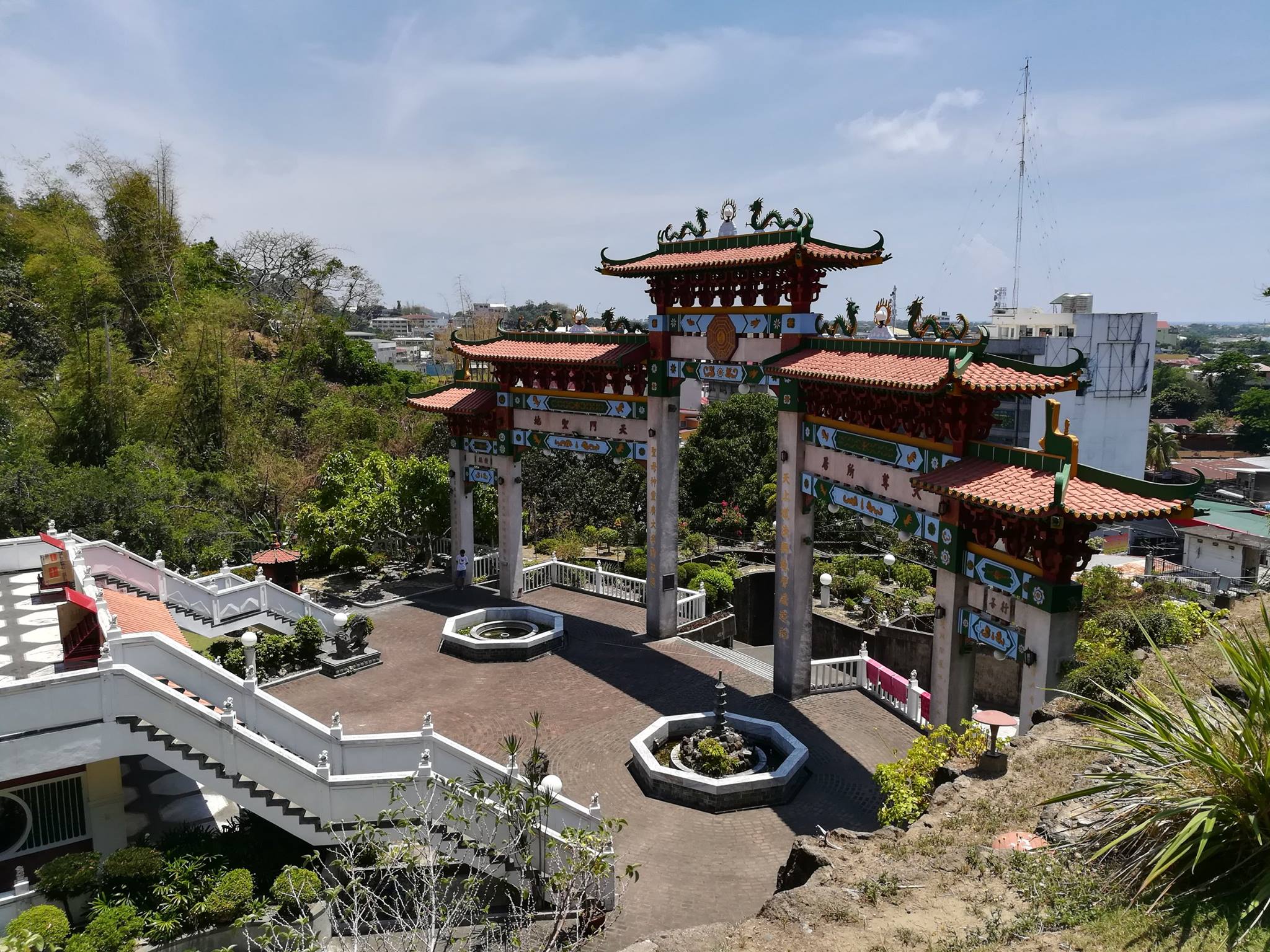
Who was Mazu?
Mazu, or Matsu, is a popular Taoist and Chinese Buddhist goddess. She is the goddess and of the sea and people believe that she protecting fisherman and sailors. Mazu is worshiped in southern China, Vietnam and Taiwan. She is known as Empress of Heaven and Holy Mother Empress of Heaven. Mazu is believed to have been a young girl named Lin Moniang who lived in the late 10th century during the Song Dynasty in China.
According to legend, she had extraordinary powers and abilities, including the ability to predict and control the weather, protect sailors from storms, and rescue those in distress at sea. She is said to have sacrificed her life while trying to save her father and brother from a storm. After her death, she became deified as the goddess Mazu.
Mazu is widely regarded as the goddess of the sea and is revered as a protector of fishermen, sailors, and all those who venture out onto the water. She is believed to have the ability to calm the seas, guide ships to safety, and offer blessings for successful voyages.
Mazu is widely worshipped in coastal regions of China, Taiwan, Hong Kong, and other areas with a significant Chinese diaspora. Temples dedicated to her, such as the Ma-Cho Temple in San Fernando, La Union, Philippines, are built to honor her and provide a place for devotees to offer prayers and seek her blessings. Many of these temples hold elaborate ceremonies and festivals on Mazu's birthday and other significant dates.
Mazu holds great cultural significance for Chinese communities, especially those involved in fishing and maritime industries. She is seen as a symbol of protection, guidance, and good fortune. Mazu's influence extends beyond religious practices and is reflected in various aspects of Chinese culture, including art, literature, music, and folklore.
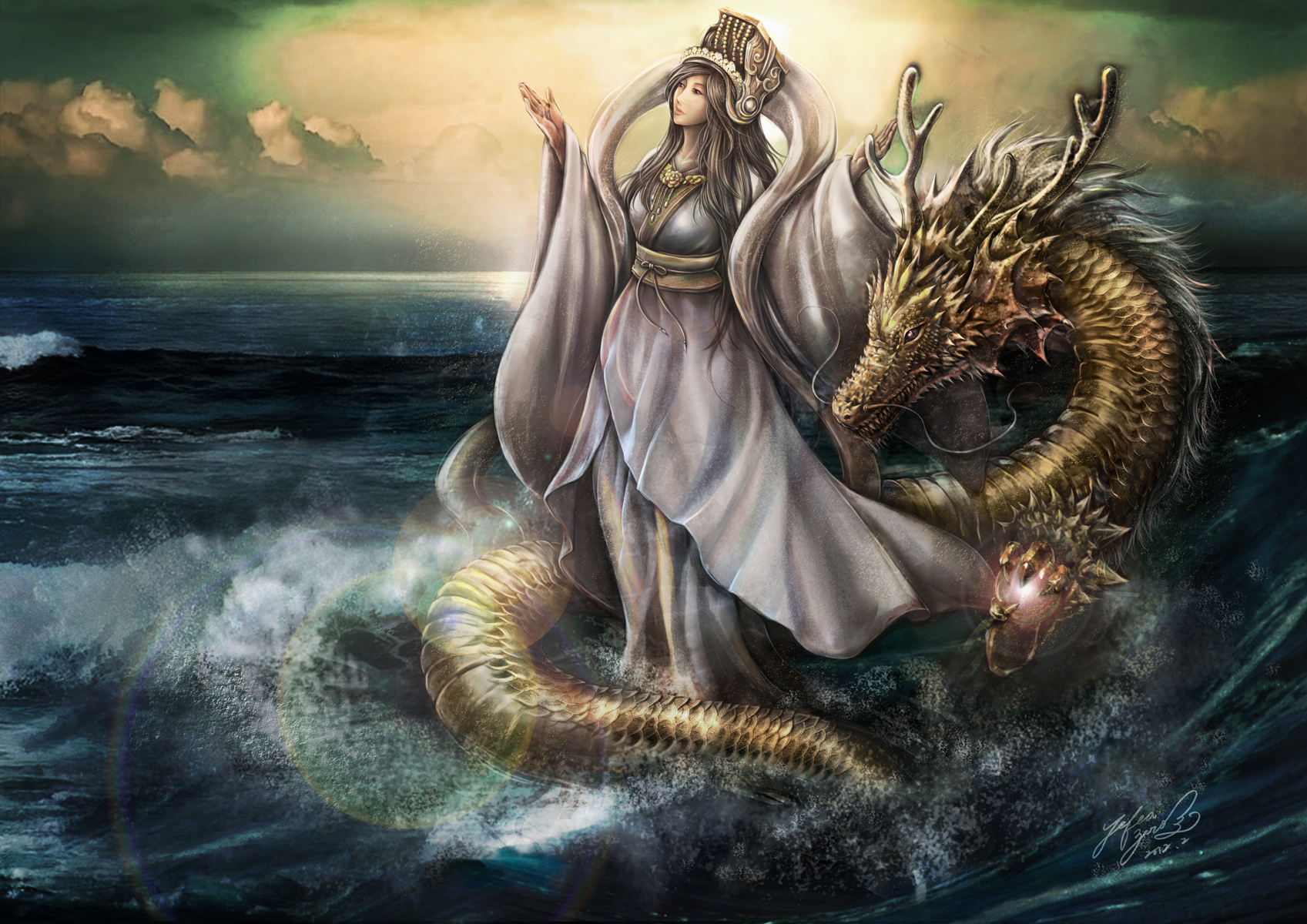
What is Taoism?
Taoism, also known as Daoism, is an ancient philosophical and spiritual tradition that originated in China. It is based on the teachings of Laozi (also spelled as Lao Tzu), the legendary sage and author of the foundational text of Taoism, the Tao Te Ching. Here is some key points about Taoism:
The Tao
At the core of Taoism is the concept of the Tao, which can be translated as "the Way" or "the Path." The Tao represents the underlying principle of the universe, the source of all things, and the natural order of existence. It is considered ineffable and transcendent, beyond human comprehension.
Embracing Simplicity
Taoism emphasizes living in harmony with the Tao and the natural rhythms of life. It encourages individuals to embrace simplicity, spontaneity, and naturalness in their thoughts, actions, and interactions with the world. Taoists believe that by aligning with the Tao, one can attain inner peace, balance, and spiritual fulfillment.
Yin and Yang
Taoism incorporates the concept of yin and yang, representing the complementary and interconnected forces in the universe. Yin is associated with qualities such as darkness, passivity, and femininity, while yang represents light, activity, and masculinity. The goal in Taoist philosophy is to maintain a harmonious balance between these opposing forces.
Wu Wei
Wu wei is a central principle in Taoism, often translated as "non-action" or "effortless action." It suggests that one should act in accordance with the natural flow of the Tao, without force or striving. Wu wei is not passivity but rather a state of being in which one acts spontaneously and effortlessly, in tune with the unfolding of the Tao.
Inner Alchemy
Taoism also encompasses various practices aimed at cultivating longevity, vitality, and spiritual transformation. Inner alchemy, also known as neidan, involves refining and purifying one's internal energies (qi) through meditation, breathing exercises, and visualization techniques. The goal is to attain immortality or spiritual transcendence.
Religious Taoism
While Taoism originated as a philosophical tradition, it also developed religious aspects over time. Religious Taoism incorporates the worship of deities, ancestor veneration, ritual practices, and the quest for immortality through external elixirs or alchemical practices. It includes a pantheon of gods and goddesses, with Taoist temples serving as places of worship and spiritual guidance.
Taoism is a complex and multifaceted tradition with a rich history and diverse interpretations. It has influenced various aspects of Chinese culture, including art, literature, medicine, and martial arts. Today, Taoist principles and practices continue to be embraced by individuals seeking personal well-being, spiritual growth, and harmony with nature.
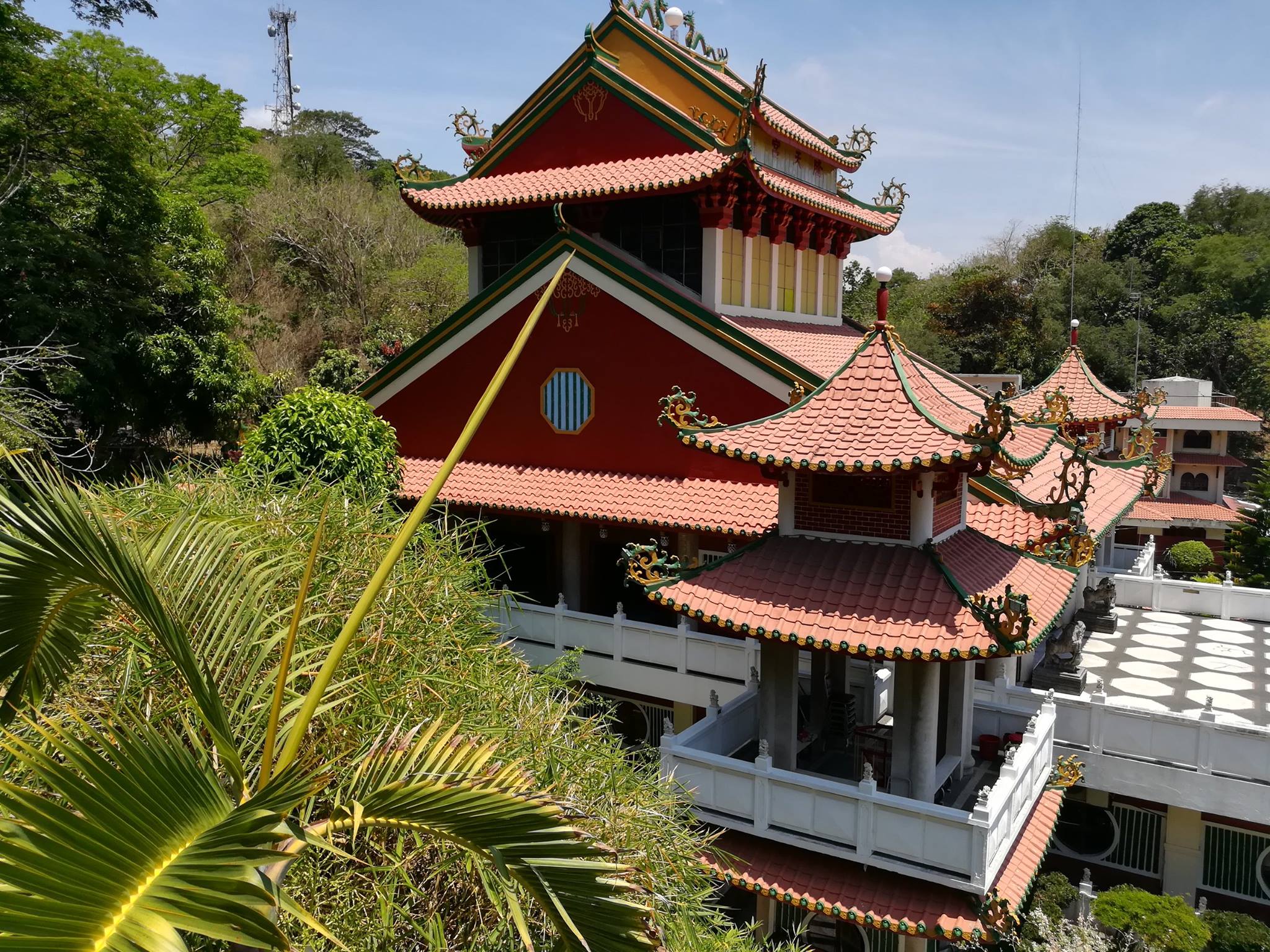

Nearby Attractions: San Fernando Beach, Pindangan Ruins, Tangadan Falls.





